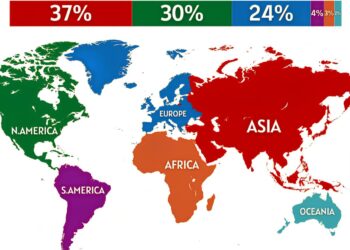Select Language:

Major Moments That Changed Humanity: A 2025 Perspective
1. Early Innovations that Started It All
Invention of Basic Tools (~2.5 million BCE)
Humans began crafting stone tools, providing early advantages in hunting and processing food, laying the groundwork for technological progress.Mastery of Fire (~1 million BCE)
Controlling fire revolutionized cooking, warmth, and safety, significantly impacting human survival and social life.ADVERTISEMENTEmergence of Homo sapiens (~300,000 BCE)
The appearance of anatomically modern humans marked a pivotal step in our evolutionary journey, culminating in the diverse societies we see today.
2. Artistic, Agricultural, and Civilizational Foundations
Cave Paintings at Lascaux (~30,000 BCE)
Ancient artworks reflect early human expression and spiritual beliefs, offering a glimpse into prehistoric culture.Agricultural Revolution (~10,000 BCE)
Transitioning from hunter-gatherer to farming communities enabled population growth and permanent settlements.Rise of Mesopotamia (~3500 BCE)
Often called the cradle of civilization, it introduced cities, centralized governance, and early writing.Invention of Writing (~3200 BCE)
Facilitated record-keeping, communication, and the preservation of knowledge across generations.ADVERTISEMENTConstruction of Egyptian Pyramids (~2600 BCE)
Marvels of engineering that reflected religious beliefs and societal organization.
3. Legal, Religious, and Political Turnpoints
Code of Hammurabi (~1750 BCE)
One of the earliest known legal codes, establishing justice and societal order.Birth of Hinduism (~1500 BCE)
One of the world’s oldest religions, shaping cultures and philosophies across South Asia.Rise of Judaism (~1200 BCE)
Foundation for monotheistic faiths and ethical systems influencing Western civilization.Birth of Buddhism (~563 BCE)
Spreader of spiritual teachings emphasizing mindfulness and compassion.Founding of the Roman Republic (509 BCE)
Set the stage for republican governance and legal principles affecting the Western world.Birth of Democracy in Greece (~500 BCE)
Laid the groundwork for participatory government that influences modern political systems.
4. Conquests, Empires, and Cultural Evolutions
Alexander the Great’s Conquests (~330 BCE)
Spread Hellenistic culture across continents, shaping art, science, and philosophy.Birth of Jesus Christ (~4 BCE)
Founded Christianity, drastically transforming religious landscapes.Roman Empire Established (27 BCE)
Aculmination of Roman political and military power, influencing law, architecture, and governance.Fall of Western Roman Empire (476 CE)
Marked the transition into the Middle Ages in Europe, sparking new cultural transformations.Rise of Byzantine Empire (~500 CE)
Kept Roman legacy alive and preserved knowledge through turbulent times.
5. Religious Schisms and the Reformation
Great Schism (1054)
Divided Christianity into Western Catholic and Eastern Orthodox branches.Crusades Begin (1096)
Militarized religious efforts that influenced Europe-Middle East relations for centuries.Magna Carta Signed (1215)
Limited royal authority and laid foundations for constitutional law.Black Death (1347–1351)
Devastating pandemic that reshaped European society, economy, and religious views.
6. Age of Discovery and Renaissance
Age of Exploration Begins (1400s)
Led by explorers like Columbus, connecting continents, and opening new trade routes.Italian Renaissance (1400–1600)
A rebirth of arts, science, and humanism that transformed Western culture.Gutenberg Printing Press (1440)
Made books accessible, spreading knowledge exponentially.Fall of Constantinople (1453)
Marked the end of Byzantine dominance and propelled European exploration.Columbus Discovers America (1492)
Initiated widespread contact between the Old and New Worlds.
7. Religious and Scientific Revolutions
Protestant Reformation (1517)
Challenged church authority, leading to religious diversity and modern individualism.Magellan’s Circumnavigation (1519–1522)
Demonstrated the global scope of exploration and trade.Aztec Empire Falls (1521)
A significant event in the European conquest of the Americas.Scientific Revolution (1500s–1600s)
Fundamental shifts in understanding of nature, leading to modern science.Galileo’s Discoveries (1609)
Challenged traditional views and advanced astronomy.
8. Political Upheavals and Enlightenment
English Civil War (1642–1651)
Refined ideas on governance and individual rights.Glorious Revolution (1688)
Ensured constitutional monarchy and parliamentary sovereignty.Enlightenment Era (1700s)
Ideas of reason and individual rights inspired revolutions and reforms worldwide.
9. Revolutions and Industrial Transformations
American Revolution (1775–1783)
Established a new nation based on principles of liberty and democracy.U.S. Constitution Signed (1787)
Set a model for democratic governance.French Revolution (1789)
Challenged monarchy, led to republics, and influenced global politics.Industrial Revolution (1760–1840)
Transformative period with mechanization, urbanization, and economic growth.Steam Locomotive Invented (1814)
Revolutionized transportation, fostering commerce and mobility.
10. Modern Warfare, Technology, and Social Change
Abolition of Slavery (1807–1865)
Ended a brutal institution, advancing civil rights movements.Darwin’s “Origin of Species” (1859)
Championed evolution, influencing science and philosophy.American Civil War (1861–1865)
Fought over slavery, Union, and states’ rights, cementing national unity.Unification of Germany (1871)
Redrew European borders and shaped modern nation-states.Invention of Electric Light (1879)
Brought widespread illumination, extending productivity and nightlife.Telephone Invention (1876)
Enhanced global communication, shrinking distances.Second Industrial Revolution (1870–1914)
Brought steel, oil, and chemicals into mass industry.Automobile Invention (1886)
Revolutionized travel, commerce, and urban development.Einstein’s Theory of Relativity (1905)
Revolutionized physics, deepening understanding of space and time.Penicillin Discovered (1928)
Launched era of antibiotics, saving countless lives.World War I (1914–1918)
Redrew borders, toppled empires, and changed warfare forever.Russian Revolution (1917)
Led to the rise of communism and transformation of Russia.Treaty of Versailles (1919)
Ended WWI, sowing seeds for future conflict.Great Depression (1929)
Global economic downturn with lasting impacts.Rise of Nazi Germany (1933)
Led to World War II and the Holocaust.
11. The World War Era and Its Aftermath
World War II (1939–1945)
Most devastating conflict, reshaping geopolitics.Hiroshima & Nagasaki (1945)
First use of atomic bombs, changing warfare and diplomacy.Nuremberg Trials (1945–1946)
Held war crimes accountable, establishing legal standards.United Nations Founded (1945)
Aimed to promote peace and prevent future conflicts.Marshall Plan (1948)
European recovery plan to rebuild after war.Creation of Israel (1948)
A pivotal moment in Middle Eastern geopolitics.NATO Formation (1949)
Established collective security during Cold War tensions.People’s Republic of China (1949)
Became a major global player and reshaped regional politics.
Discovery of DNA Structure (1953)
Revolutionized biology and medicine.Korean War (1950–1953)
Confrontation between North and South Korea, highlighting Cold War divisions.Sputnik Launch (1957)
First artificial satellite, igniting the space race.Moon Landing (1969)
Humankind’s giant leap, symbolizing technological triumph.Birth of the Internet (1969)
Changed communication, commerce, and daily life.Civil Rights Movement (1950s–1960s)
Fought racial inequality, inspiring global human rights campaigns.Cuban Missile Crisis (1962)
Brink of nuclear war underscored Cold War dangers.End of Vietnam War (1975)
Brought change to Southeast Asia and U.S. foreign policy.Environmental Movement Rise (1970s)
Led to awareness and policies on ecological conservation.Fall of Berlin Wall (1989)
Symbolized the end of Cold War division.Collapse of the Soviet Union (1991)
Redrew world geopolitical lines and ended decades of rivalry.World Wide Web Created (1991)
Placed the entire world at our fingertips, revolutionizing society.End of Apartheid (1994)
Racial segregation in South Africa was dismantled, fostering hope for equality.First Cloning (Dolly the Sheep, 1996)
Marked milestones in genetics and biotechnology.Asian Financial Crisis (1997)
Brought attention to global economic vulnerabilities.Rise of Mobile Phones (1990s)
Enabled instant communication across the planet.Major Tech Giants (1980s–1990s)
Microsoft, Apple, and others transformed computing and lifestyles.End of Cold War (1991)
Led to a new global order centered around cooperation and economic integration.German Reunification (1990)
Brought East and West Germany together after decades apart.Globalization Boom (1990s)
Increased interconnectedness in trade, culture, and technology.9/11 Terror Attacks (2001)
Redefined security, warfare, and international relations, prompting a new era of global vigilance.
These pivotal moments shaped contemporary society and continue to influence our world in 2025. Understanding these milestones helps appreciate the complex journey of human progress.






